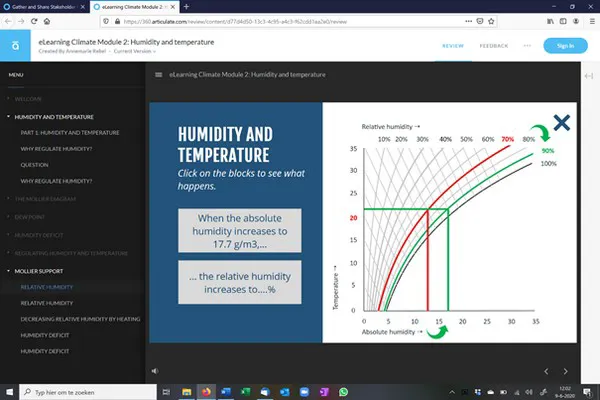 The foreign demand for knowledge and skills in horticulture is enormous. Increasingly, this knowledge and expertise has turned out to be a key factor in running a project well. And rightly so: there are greenhouses that are empty because the cultivation or organization was so bad that it turned out not to be profitable, says Jan Vrins of Bilancia Horticulture Projects.
The foreign demand for knowledge and skills in horticulture is enormous. Increasingly, this knowledge and expertise has turned out to be a key factor in running a project well. And rightly so: there are greenhouses that are empty because the cultivation or organization was so bad that it turned out not to be profitable, says Jan Vrins of Bilancia Horticulture Projects.
The company, that guides international growers, foresaw a shortage of experienced growers and a continued growth of greenhouse horticulture projects (until corona came along, although everything has started again reasonably well) and therefore decided to focus on the key component, namely the writing of basic educational courses.
Visiting the project not always possible
The first, 'Organization in Horticulture', has been finished. "The starting point is always the novice level, and the final level of the course should be at the level of the old Secondary Horticultural School in the Netherlands, nowadays the level of 'starting middle manager'."
The number of experienced Dutch growers who are willing to go abroad for a longer period to supervise a project and take care of the cultivation, is decreasing. Still, it is precisely that knowledge and expertise that is of great value when setting up projects abroad. "Walking around at the project, discussing things with the people on the spot, explaining things and at the same time demonstrating how to do things, is the most optimal way of guiding. But that cannot always be achieved, that much is now clear with the coronavirus outbreak."
Basic course
The course 'Organization in Horticulture' is the first, the basic module. "In the 'Organization' course, the tasks and competencies schedule is discussed, among other things. The student then learns that various specialists should be trained from the middle management. For example, the fertilization course ('fertilizers in substrate') has now been prepared (a demo of the course can be seen here). This is preceded by a brief introduction to chemistry."
The basic course 'Climate' has also been written. "It explains the principles of the climate." It really is a 'basic course', says Jan. "For example, the Climate course lays the foundation for further development. The course does not address the settings in the climate computer. That is part of the 'continuation' that the supplier of the climate computer has to provide. In the course we do discuss general matters such as the Mollier diagram, the p-step and p-band."

A screenshot from the course
Jan is still working on the courses 'Integrated Pest Management' and 'Plant Physiology'. "All courses are in English and also translated into Russian and Uzbek."
Mixed learning
The courses are intended for people who (now or possibly in the future) are or will fulfil a position as middle manager, which often requires specialization, but also for students in horticulture.
According to Jan, horticultural education in the Netherlands has always been able to distinguish itself very well from other middle-level courses because the schools were located near the greenhouses.
"There was a close relationship between the school and the business community and the students also had practical lessons and training in addition to theory. In the courses we tried to retain the great advantage of the combination of practice and theory. The courses are set up as e-learning, so that the students can familiarize themselves with the material at their own pace and time. But there is also a practical component, in which the student has to carry out a number of assignments."
During the period that a course will be accessible for a student, the progress of each student will be closely monitored from the Netherlands. "There will be regular contact between the teacher and the student via email, Skype or any other means of communication that one prefers."
Exam
When a student has completed a course and has successfully completed all assignments, the student can choose to take an exam. An exam consists of three parts:
A. A written exam, in which students show that they have mastered the theory.
B. A practical exam in which the student has to carry out a number of assignments in a greenhouse and has to show the result to the teacher.
C. An oral exam, in which the student shows that he/she has fully understood the material and can explain how he/she will solve certain assignments.
When the student has successfully completed the exams, a certificate will be issued.
Bilancia Horticulture Projects has set up the courses in close collaboration with e-learning training in The Hague. Discussions are currently underway with Lentiz, Tomatoworld and Agro-Exim to market these basic courses. In addition, the courses can also be requested for a fee from Bilancia in LMS. Demos are now online here for those who are interested.
For more information:
Jan Vrins
+31 (0) 6 55 72 50 75
Bilancia Horticulture Projects
www.bilancia.nl
[email protected]
